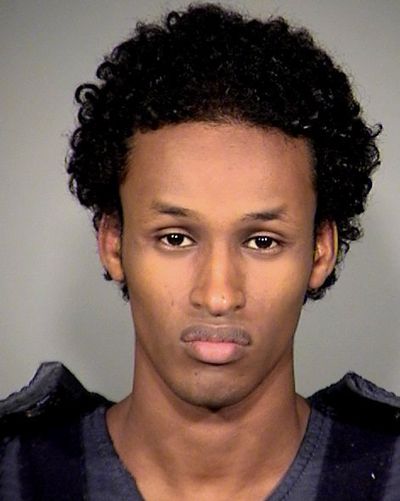FBI blows recording
Revelation could weaken alleged bomb plot case

PORTLAND – The failure of an undercover federal agent to record a conversation with a suspect in a terrorism case could hamper his prosecution and bolster a defense claim that the FBI tried to steer him into a crime, a legal expert said Friday.
The problem with a recording device was spelled out in a government response to a March 7 discovery motion filed by defense lawyers for Mohamed O. Mohamud, a 20-year-old Somali-American who is accused of trying to detonate a bomb at a Portland Christmas tree-lighting ceremony in November.
The device ran out of battery power just as the July 30 meeting began, prosecutors said.
“Put simply, it was human error. The device was accidently turned on hours before the meeting time and therefore ran out of battery power as the meeting began,” prosecutors wrote in the response filed Thursday.
The government has never spelled out exactly what Mohamud said during that conversation, which marked the first contact between him and undercover FBI agents.
An agent did write notes on the discussion after it was over, and that material has been turned over to defense lawyers but not made public.
The failure to record the encounter could pose problems for the prosecution when it tries to show Mohamud was predisposed to detonating the bomb before he was contacted by the FBI, said Paul Marcus, a William & Mary college law professor and the author of a book on entrapment.
“If he can raise legitimate concerns about what was said, it could affect what the jury believes,” Marcus said.
Mohamud is charged with attempting to detonate a weapon of mass destruction. He has pleaded not guilty.
During several months of meetings, two undercover FBI agents who Mohamud thought were members of a radical Islamic group purported to initiate him into jihadist circles and gave him options for carrying out deeds for the good of Islam.
The undercover agents told Mohamud they would plant a bomb that would go off when he pressed a button on a cell phone. But no bomb was deployed, and Mohamud was arrested.
Though the initial meeting with FBI agents wasn’t recorded, they did record subsequent meetings in which they warned Mohamud several times about the seriousness of his plan, told him women and children could die, and said he could back out, according to the indictment in the case.
Mohamud’s lawyers have raised the possibility of an entrapment defense, which would require them to show that Mohamud wasn’t predisposed to committing a crime before he was enticed into it by the government.
If U.S. District Judge John V. Acosta finds there was enough evidence to support an entrapment defense, he will instruct the jury on the details of entrapment. If he does so, the prosecution must either prove that Mohamud was predisposed to committing a crime, or that the government didn’t induce him to commit one.